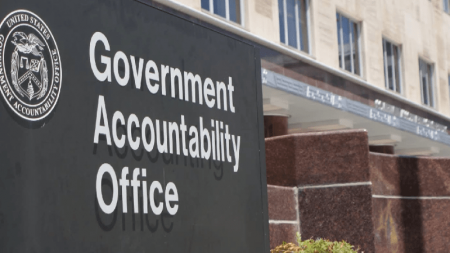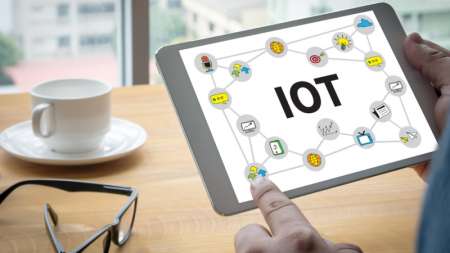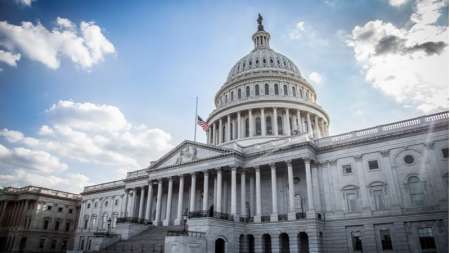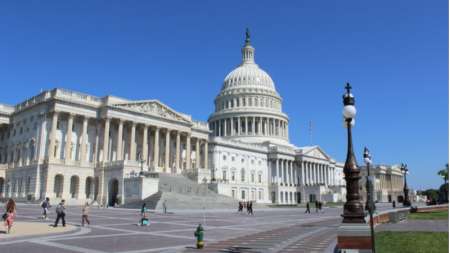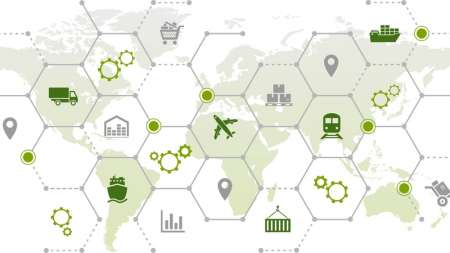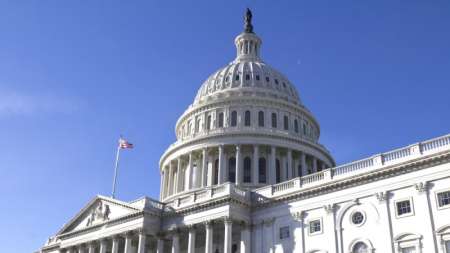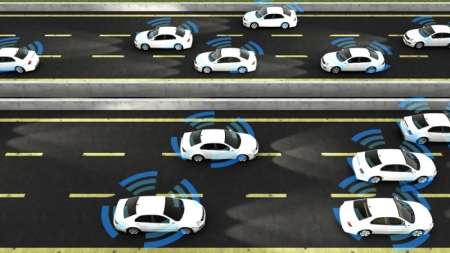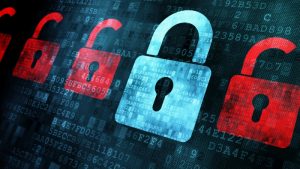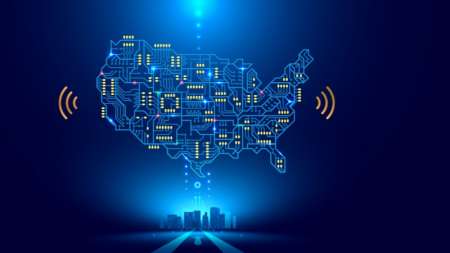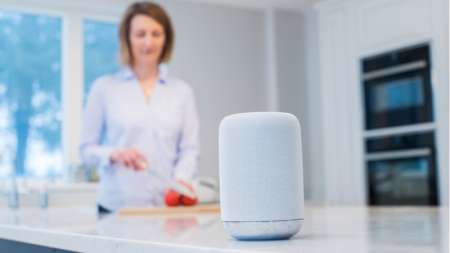Several agencies aren’t as secure as they need to be after missing deadlines to meet Internet of Things (IoT) cybersecurity requirements, the Government Accountability Office (GAO) revealed. […]
A new report from the Government Accountability Office (GAO) is calling on Federal agencies to better protect critical infrastructure sectors by conducting Internet of Things (IoT) and operational technology (OT) risk assessments, as well as developing better metrics to assess their existing IoT and OT efforts. […]
Federal agencies have until December to implement cybersecurity requirements for Internet of Things (IoT) deceives, Katerina Megas, program manager for the National Institute of Standards and Technology’s (NIST) IoT cybersecurity program, said on Nov 8. […]
The Biden administration is targeting the spring of 2023 to roll out a proposed new national cybersecurity labeling program for internet-of-things (IoT) devices, a National Security Council spokesperson confirmed today. […]
The National Institute of Standards and Technology (NIST) is looking for information on the trends and future investment needs for eight emerging technology sectors to complete a study authorized in the fiscal year (FY) 2021 appropriations act, according to a request for information (RFI) posted to the Federal Register Nov. 22. […]
With many more people teleworking in 2020 due to the COVID-19 pandemic, cyberattack surfaces changed and expanded, and as many worked from home with Internet of Things (IoT) devices abandoned at the office, threat actors took advantage. Part of the fallout from those realities, according to two Zscaler studies, was that malware attacks on IoT devices connected to corporate networks increased by 700 percent year-over-year in 2020, compared to the firm’s 2019 study. […]
According to a U.S. Army spokesperson, the military branch has rescinded a policy that restricted Internet of Things (IoT) devices from telework environments to prevent data leaks and protect the privacy of critical unclassified information, personally identifiable information, and operational data. […]
With IoT devices exploding in popularity and use in recent years, Reps. Suzan DelBene, D-Wash., and John Katko, R-N.Y., reintroduced a bill that would direct the Federal Communications Commission (FCC) to collect data from devices that connect to the Internet to ensure there is enough spectrum capacity. […]
The Department of Homeland Security (DHS) Science and Technology Directorate (S&T) Silicon Valley Innovation Program (SVIP) is continuing a partnership with Bastille Networks—an Atlanta-based Internet of Things (IoT) technology start-up—by awarding the company a Phase 5 Other Transaction Agreement (OTA). […]
The House passed the Internet of Things (IoT) Cybersecurity Improvement Act of 2020 yesterday and as it moves to the other chamber with support from bipartisan senators, leaders of the IoT cyber legislation are looking ahead to what this legislation could mean for IoT manufacturers and American privacy. […]
A new Government Accountability Office (GAO) survey finds that 56 of 90 Federal agencies surveyed reported using Internet of Things (IoT) devices, while 13 reported that they are not using IoT devices and do not plan to use them for a variety of reasons, including insufficient return on investment. […]
The Internet of Things (IoT) Cybersecurity Improvement Act of 2020 passed the House today and is moving to the Senate for consideration. The legislation would set a minimum-security standard for all IoT devices purchased by government agencies. […]
Reps. Cathy McMorris Rodgers, R-Wash., and Bobby Rush, D-Ill., introduced a bill to mandate studies by the Department of Commerce and Federal Trade Commission on emerging technologies such as artificial intelligence, blockchain, and quantum computing. […]
According to a new report by NASA’s Office of Inspector General (OIG), NASA is not adequately securing its networks from unauthorized access by IT devices, and has not fully implemented controls to remove or block unauthorized IT devices from accessing the agency’s networks and systems. […]
New legislation introduced in the House by Reps. Peter Welch, D-Vt., and Cathy McMorris Rodgers, R-Wash., expands on Senate legislation passed earlier this year to plan for, develop, and grow Internet of Things (IoT) investments. […]
Sens. Ron Johnson, R-Wis., and Gary Peters, D-Mich., have introduced legislation to expand the pool of communications service providers who could apply for Federal government funding to remove and replace network equipment made by firms the government judges to be “untrusted,” such as China-based Huawei and ZTE. […]
The Telecommunication Industry Association (TIA) says that those involved in developing wireless, Internet of Things, 5G, and other compute-rich networks are at security and economic risk and that the solution is global supply chain security standards and programs that are industry driven. […]
While the Internet of Things (IoT) promises enormous potential for increasing government efficiency and the user experience, it also creates serious cybersecurity risks. All levels of government and the private sector continue to grapple with how to capitalize on its potential, while making sure the IoT ecosystem is secure and resilient against attacks. […]
A new bill introduced today by Rep. Ro Khanna, D-Calif., would require Federal employees to receive cybersecurity training that includes the risks of Internet of Things (IoT) devices. […]
Technology and transportation industry groups penned a letter to Congressional leadership today urging Congress to ensure innovation can flourish in the facial recognition space, while still creating needed regulation. […]
The Congressional Budget Office (CBO) said in a Sept. 13 report that implementing the Internet of Things (IoT) Cybersecurity Improvement Act of 2019 will cost $35 million over the 2019-2024 period, and an additional $11 million in 2020 to develop the IoT guidelines and standards mandated in the legislation. […]
Sens. Edward Markey, D-Mass., and Richard Blumenthal, D-Conn., are asking the National Highway Traffic Safety Administration (NHTSA) about what the senators called a lack of public disclosure about cyber vulnerabilities in internet-connected vehicles, and suggested that the government may want to consider taking “possible regulatory action” to remedy that lack of public information. […]
The National Institute for Standards and Technology (NIST) released a draft interagency report to establish a core baseline guide for cybersecurity that manufacturers may adopt for Internet of Things (IoT) devices they produce. […]
Legislation introduced in the House this week by the co-chairs of the House High-Tech Caucus would order up some initial steps that could lead to the U.S. increasing its influence in creating international standards for internet of things (IoT) devices. […]
According to security researchers Chase Dardaman and Jason Wheeler, three security flaws in Zipato smart hubs can be used to unlock doors equipped with smart locks if the flaws are chained together. […]
The National Institute of Standards and Technology (NIST) released an interagency report offering guidance for Federal agencies for managing Internet of Things (IoT) cybersecurity and privacy risks. […]
Senators and panelists across government and industry came to agreements, but also butted heads, about steps to take in strengthening Internet of Things (IoT) cybersecurity at an April 30 Senate Commerce, Science, and Transportation Security Subcommittee hearing. […]
The National Institute of Standards and Technology (NIST) released draft guidance on securing internet of things (IoT) devices for small business and home applications so that manufacturers can create products that only transmit data in approved ways. […]
With the increasing ubiquity of internet of things (IoT) devices and the vast expansion of the cyber attack surface that those devices create, National Security Agency (NSA) IoT Enterprise Functional Team Lead Arlene Santos is emphasizing the importance of the IoT Cybersecurity Improvement Act reintroduced in Congress last month as way to address the cybersecurity concerns posed by rapid IoT device growth. […]
Serverless computing, the next evolution in cloud computing, offers Federal agencies the opportunity to increase productivity while reducing costs. […]

